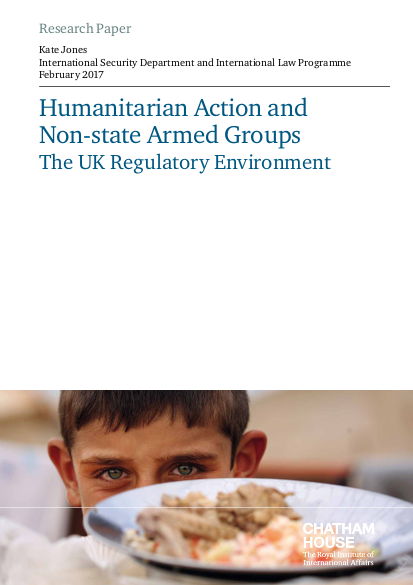
In the UK, humanitarian actors’ engagement with non-state armed groups (NSAGs) lies on the fault line between two competing government priorities: support for humanitarian activity and countering terrorist financing. At times, measures aimed at combating terrorist financing have not taken sufficient account of humanitarian activity, although around 20 per cent (£1.2 billion)1 of UK government bilateral overseas development assistance is delivered through humanitarian actors (defined here as UK-based NGOs providing humanitarian relief overseas), and the government actively promotes humanitarian relief, for example as part of the response to the crisis in Syria.2
This paper outlines elements of the UK regulatory framework that do or could adversely affect humanitarian action in areas controlled by NSAGs. The first section examines the potential impact of UK sanctions and counterterrorism legislation, and Charity Commission regulation, on the activities of humanitarian actors operating overseas. It also notes, but does not discuss in detail, the possible impact of other states’ legislative regimes on UK-based actors. The following two sections address, respectively, the impact of Department for International Development (DFID) funding agreements and banking regulation. The final section outlines initiatives being undertaken by the UK government to address concerns about the current framework and challenges yet to be tackled, and considers proposals for further action.